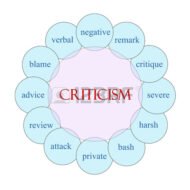Posted by Managementguru in Human Resource, Interview Questions, Strategy, Training & Development
on Jun 5th, 2014 | 0 comments

How do you answer “What is Your Greatest Weakness?” Job Interview Question or JIQ #2 “Our greatest weakness is that, We are unwilling to accept our weaknesses.” If you are subjected to this question in a job interview – “What is your greatest weakness?” what will be your response or reaction? You would have been bowled over by the time your brain scans for some reply (way-out) that would be appropriate. This kind of a question can potentially damage or salvage your job prospects – Yes! It solely depends on how honest you are in dealing with your own weaknesses or short comings and also how wisely you are able to turn it to your advantage. Your response tells the interviewer a lot about your uprightness, so it unquestionably holds a lot of weight.” “To err is human But to forgive is not in an interviewer’s agenda.” Never choose a weakness that indicates your inappropriateness for the job: “A salesman has to be good at communication” “An accountant needs to be good at calculations” “A teacher has to have a patient attitude to manage the students” Will you hire a person with quick temper for a customer relationship position? Will you hire somebody who lacks charisma to be a team-leader? Here, we are just not talking about the technical skills alone, but also about attitude and emotional traits of a person that define his/her personality. Remember that a weakness isn’t necessarily bad: So, the main idea of throwing this question in an interview is not to pull your legs down (though sometimes the interviewee falls a prey by his own naivety), but to gauge how well you can handle or had handled a pressure-situation in previous jobs. Try not to expose your personal weakness- If you say you can’t get up early in the morning, do you think your hiring manager will appreciate the idea? Try to rationalize how you transformed a weakness into strength by perception and perseverance in a purely job-related context. Don’t blurt stereo-type answers: Be direct in your approach and avoid stereo-type answers which will irritate the interviewers; I’m a perfectionist, I pay attention to detail, I never relax, I’m a workaholic- all these responses will sure-fire you from the prospective list. These are neither strengths nor weaknesses but only hypocritical projections of your “self.” These kind of compliments should come from people around you and sometimes it is funny how the greatest strength becomes the greatest weakness too. Do Your Homework Properly: Think about this, if you are a workaholic who spends 15 hours a day adding prosperity to the company, your boss might be happy, but will your wife and children be happy? I’m able to feel the heat from the women folk – the same applies to you too. Though the subject deviates to work-life balance, the undercurrent of the discussion is not to mention your weakness that is directly related to the job you are applying for. Do your homework properly by analyzing the job specification and description thoroughly and decide if you will fit the bill. Mention the areas you are trying to improve upon; you can very well say, “I’m trying to improve my prioritization skills which would help me to line up tasks and complete projects well within the time limit.” You can highlight how you were an introvert and how you have transformed yourself as a “people-person” by realizing that it is the order of the day to be successful in a professional environment. Avoid Rehearsed answers: “If you don’t know your weakness, take a personality type quiz and the results...

Posted by Managementguru in Human Resource, Organisational behaviour, Principles of Management
on Mar 17th, 2014 | 0 comments

Criticism Makes You Stronger and Sharper “Flattery is telling the other person precisely what he thinks about himself.” –Dale Carnegie “Criticism may not be agreeable, but it is necessary.”-Winston Churchill Critics are always feared for their barbed tongue and piercing comments. If you look at popular figures and celebrities, they tend to give much importance to these comments as they are real tools for self improvement and personal enhancement. Criticism helps improve knowledge, helps all the parties involved and helps one to learn and react to the actions of others. It is also a no-cost source of research that promotes a team spirit as well as a certain broad-mindedness / open mindedness of the human resources of an organization. It is a non-monetary tool of motivation. It helps in achieving organizational goals and objectives, also helps in realizing hidden mistakes, and tackles various bottlenecks. No doubt, it is a mixed blessing! Despite its benefits, it renders the following costs, which are the dark side of the coin: 1. It paves the way to enmity and hostility amongst those who frame policies and those who implement them. 2. It may lead to industrial dispute. It creates an unpleasant, undisciplined atmosphere in an organization. 3. It may result in unhealthy conflicts in an organization, undermining its human resources base. 4. It could also kill the spirit of initiative. 5. A superior may feel hurt or insulted when his subordinates / peers pinpoint his short-comings. Criticism can be made more positive on the following premises: 1. Do not perceive it as something bad or a shortcoming. If you feel it is unworthy of you, turn a deaf ear to it. 2. Give some time for the dust to settle down when someone is rude in his criticism as, with time, its impact will be diluted. 3. If you are criticized unfairly defend yourself and stand by your conviction. 4. Perceive it as a source of potential help in making wise decisions. 5. Do not arm the critic by counter attacking. That blows into a vendetta at times. 6. Do not raise your voice above the voice of critic – let him go ahead and be mild and amicable with him. Criticism is like the proverbial double-edged sword, and so can easily be made more effective as a potential business management tool by selecting leading and conductive spots where critics can come together and draw their views verbally / non-verbally, publicly or anonymously. Perceive critics as a vital source to help solve and implement solutions for the problems raised. Explore the critic’s view fully and freely, providing all sorts of ways in which critics can express their deliberations without...




